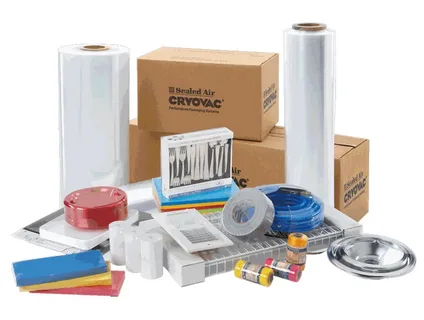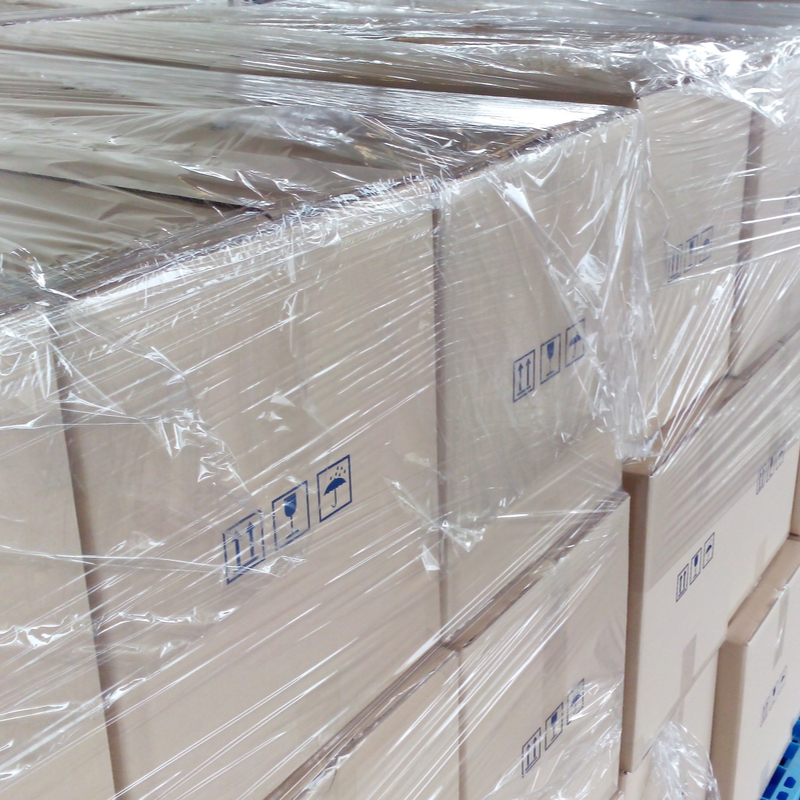Background
International Agreements on Plastic Packaging
The Supply of Plastic Packaging Goods Agreement is an international agreement that aims to control the flow of plastic packaging goods into a country. It sets rules for the manufacture and supply of plastic packaging materials, with the goal of reducing environmental damage and promoting sustainable practices.
The agreement applies to all countries that are signatories to it, including both developed and developing nations. Its provisions cover various aspects of the production and supply of plastic packaging goods, such as design, labeling, and packaging requirements, safety standards, and waste management regulations.
The Agreement encourages the use of environmentally friendly packaging materials, reduces waste by minimizing over-packaging, promotes recycling and reuse of packaging materials, and controls the export of hazardous substances. It also sets out clear guidelines for manufacturers, distributors, and consumers on what is considered acceptable plastic packaging under international law.
Manufacturers must adhere to strict standards regarding packaging design, material safety, labeling, and compliance with waste management regulations when producing plastic packaging goods. Companies are required to report their production volumes and waste generation data annually, enabling countries to track progress in implementing the agreement.
The Agreement is not a treaty, but rather an international arrangement under the auspices of the Basel Convention, a multilateral environmental treaty that aims to prevent the transfer of hazardous wastes from developed to developing countries. This framework allows governments to negotiate specific terms and conditions for plastic packaging goods under national laws, facilitating cooperation among countries on environmental issues.
One of the significant challenges in implementing this Agreement is enforcing compliance across multiple jurisdictions with varying regulatory environments. Countries may face difficulties in monitoring production volumes, tracking waste generation, and imposing sanctions on non-compliant manufacturers.
To address these challenges, an enforcement mechanism has been established to ensure compliance with agreement requirements. This includes providing technical assistance for developing countries to upgrade their regulatory capacity, facilitate information sharing among countries to detect discrepancies in reporting, and establishing clear criteria for assessing the severity of non-compliance incidents.
The Agreement encourages research and development into sustainable plastic packaging materials that meet environmental standards while maintaining acceptable performance characteristics for end-users. Manufacturers are incentivized to develop products using environmentally friendly materials and manufacturing processes that minimize waste generation.
Despite efforts to control plastic pollution, concerns remain over the agreement’s effectiveness in completely eliminating the problem. Critics argue that voluntary measures may not be enough to stem the tide of plastic waste entering oceans and affecting ecosystems. They also point out that some countries with inadequate infrastructure may struggle to implement the agreement effectively.
To address these limitations, many signatory countries have opted for stronger regulations within their domestic laws than required under the Agreement. By doing so, they hope to achieve greater reductions in plastic pollution than what is achieved through international cooperation alone.
The Supply of Plastic Packaging Goods Agreement Manufacture is an international agreement aimed at regulating the production and trade of plastic packaging goods.
The Supply of Plastic Packaging Goods Agreement, also known as the Plastic Packaging Protocol, is an international treaty that aims to regulate the global production, consumption, and trade of plastic packaging materials. The agreement was negotiated by the United Nations Environment Programme (UNEP) and was adopted by 186 countries in May 2020.
The primary objective of the Supply of Plastic Packaging Goods Agreement Manufacture is to reduce the environmental impacts associated with the production and use of single-use plastics, such as plastic bags, straws, water bottles, and microbeads. The agreement sets out a framework for countries to implement policies and measures to prevent littering, promote recycling, and ensure the safe disposal of plastic waste.
The Supply of Plastic Packaging Goods Agreement Manufacture is based on several key principles, including:
- Extended Producer Responsibility (EPR): This principle requires manufacturers to take responsibility for the waste generated by their products, including plastic packaging materials. EPR aims to encourage companies to design more sustainable and recyclable products.
- Waste reduction: The agreement encourages countries to adopt policies that reduce the production of plastic packaging materials and promote the reuse or recycling of existing plastics.
- Circular economy: The Supply of Plastic Packaging Goods Agreement Manufacture promotes a circular economy approach, where plastic packaging materials are designed to be recycled or reused at the end-of-life.
The agreement also establishes several key provisions to support its implementation, including:
- Setting national and international targets for reducing plastic litter and increasing recycling rates.
- Developing national action plans to implement the agreement’s objectives.
- Establishing a global monitoring framework to track progress and identify areas for improvement.
The Supply of Plastic Packaging Goods Agreement Manufacture is an important step towards addressing the growing problem of plastic waste and pollution. Its implementation will require coordination among governments, industries, and civil society organizations worldwide to reduce the environmental impacts associated with plastic packaging materials and promote a more sustainable future.
Key Provisions
Definitions and Scope
The Definitions and Scope section of the Supply of Plastic Packaging Goods Agreement Manufacture outlines the key terms and definitions used within the agreement. This section provides clarity on the meanings of specific words, phrases, and concepts that are critical to understanding the agreement’s provisions.
One of the primary objectives of this section is to establish a common language for all parties involved in the agreement. By clearly defining these terms, the parties can avoid misunderstandings or misinterpretations that may arise from ambiguity or lack of clarity.
The scope of the agreement also serves as an essential component in determining the applicability and extent of its provisions. The definitions section typically provides a comprehensive overview of what is included within the agreement’s scope, such as specific types of plastic packaging goods, geographical locations, and relevant timeframes.
For instance, if the agreement is concerned with the manufacture of plastic packaging materials for food products, it would define ‘food’ in relation to its intended use, consumption patterns, or classification based on risk factors. This enables all parties to comprehend which products fall under this category and thereby, ensure compliance with relevant regulations.
Apart from defining specific terms, the scope of the agreement will also specify which entities are bound by its provisions. Typically, it includes manufacturers, suppliers, importers, distributors, and end-consumers, depending on their roles in the supply chain.
Furthermore, the definitions and scope section may outline any exclusions or limitations that apply to the agreement’s coverage. This could encompass certain products, geographical areas, or circumstances under which the agreement does not apply, such as during times of war or other extraordinary events.
In addition to these practical considerations, this section can also establish a framework for resolving disputes that may arise from misunderstandings regarding the definitions or scope of the agreement. This might involve procedures for interpreting ambiguous terms, resolving conflicting interpretations, and making adjustments to avoid future disputes.
The clarity provided by the definitions and scope section serves as an essential foundation for the effective functioning of the Supply of Plastic Packaging Goods Agreement Manufacture. By providing a common language and framework for understanding its provisions, this section minimizes misunderstandings, promotes compliance with regulations, and fosters cooperation among parties involved in the agreement.
The agreement defines key terms such as “plastic packaging” and outlines its scope, including the types of products covered and exemptions.
The Supply of Plastic Packaging Goods Agreement is a comprehensive agreement that aims to promote sustainable practices in the supply chain for plastic packaging goods. One of its primary objectives is to ensure that suppliers and manufacturers are aware of their responsibilities and obligations towards reducing waste, increasing recyclability, and using environmentally friendly materials.
In order to achieve this goal, the agreement defines key terms such as “plastic packaging” to avoid confusion or misinterpretation. This definition encompasses various types of products including bottles, jars, containers, caps, labels, and other packaging materials made from plastic.
The scope of the agreement outlines specific categories of products that are covered under its provisions. These include food contact materials such as containers for beverages, fruits, vegetables, and other edible items. Non-food contact materials like industrial packaging, agricultural supplies, and personal care products also fall within the agreement’s purview.
However, certain types of products and industries are exempt from the agreement’s requirements due to specific circumstances or regulations. For instance, pharmaceuticals, medical devices, and hazardous waste management may have different regulatory frameworks that supersede or modify the terms of the agreement. Additionally, manufacturers in developing countries with inadequate infrastructure for recycling and waste management might be granted temporary exemptions until they can meet the set standards.
The Supply of Plastic Packaging Goods Agreement provides a framework for collaboration between governments, industry stakeholders, and environmental organizations to tackle the complexities surrounding plastic packaging waste. By establishing a common understanding of key terms and scope, the agreement helps ensure that all parties work together towards reducing the environmental impact of plastic packaging goods throughout their lifecycle.
Sustainability Requirements
- The Sustainability Requirements for the Supply of Plastic Packaging Goods Agreement Manufacture is a critical component of ensuring that plastic packaging products are produced with minimal environmental impact.
- This agreement focuses on the sustainable production and consumption of plastic packaging goods, emphasizing the need to balance economic growth with environmental protection and social responsibility.
- The key objective of this agreement is to establish a framework for the development of sustainable plastic packaging systems that minimize waste generation, reduce the amount of plastics used, and promote the use of recycled materials.
To achieve these goals, the agreement sets forth several key principles, including:
- Minimizing waste generation through design changes and efficient production processes.
- Increasing the use of recycled plastics in packaging production.
- Promoting the development of biodegradable or compostable alternatives to traditional plastics.
The agreement also outlines several specific requirements for manufacturers, including:
- Conducting life cycle assessments (LCAs) to evaluate the environmental impacts of their packaging products and processes.
- Designing packaging with recyclability in mind to facilitate efficient recycling and minimize waste generation.
- Implementing sustainable sourcing practices, such as using recycled materials or purchasing from suppliers that adhere to the agreement’s sustainability standards.
The agreement also addresses social responsibility aspects of plastic packaging production, including:
- Ensuring fair labor practices and safe working conditions for employees.
- Complying with local environmental laws and regulations in all countries where manufacturing takes place.
The Sustainability Requirements for the Supply of Plastic Packaging Goods Agreement Manufacture is an important step towards reducing plastic waste, promoting recycling, and minimizing the environmental impacts associated with the production and consumption of plastic packaging goods.
The agreement sets out sustainability requirements for manufacturers, including recycling targets and waste management practices.
The Supply of Plastic Packaging Goods (SPPG) Agreement is a voluntary initiative aimed at promoting sustainable manufacturing practices within the plastic packaging industry. The agreement sets out specific requirements for manufacturers to adopt environmentally responsible approaches, including recycling targets and waste management practices.
One of the key provisions of the SPPG Agreement is the establishment of recycling targets for manufacturers. This involves setting quantifiable goals for reducing plastic waste through recycling and other means. By doing so, the agreement encourages companies to take a proactive approach in managing their waste streams and reduce the environmental impacts associated with plastic packaging.
An additional requirement under the SPPG Agreement is the implementation of effective waste management practices. This includes developing strategies to minimize waste generation, increase recycling rates, and ensure proper disposal or reuse of non-recyclable materials. Manufacturers are expected to work collaboratively with suppliers, customers, and other stakeholders to achieve these goals.
The agreement also emphasizes the importance of transparency and accountability in achieving sustainability objectives. Manufacturers are required to regularly report on their progress against set targets and provide detailed information on waste management practices and recycling achievements. This reporting mechanism enables regulators and industry stakeholders to monitor compliance and identify areas for improvement.
To support manufacturers in meeting these requirements, the SPPG Agreement provides a framework for sharing best practices and case studies of successful sustainability initiatives. This facilitates knowledge transfer among companies, enabling them to learn from one another’s experiences and leverage innovations that have been proven to work in similar contexts.
By promoting sustainable manufacturing practices through recycling targets and waste management requirements, the Supply of Plastic Packaging Goods Agreement aims to contribute to a more environmentally conscious industry. By working together towards common sustainability goals, manufacturers can reduce plastic waste, minimize their environmental footprint, and create long-term benefits for both businesses and society as a whole.
The agreement’s focus on collaboration and knowledge-sharing among stakeholders is also noteworthy. By encouraging companies to work together and share expertise, the SPPG Agreement fosters a culture of innovation and continuous improvement within the industry. This collaborative approach not only supports the development of effective sustainability solutions but also helps build trust and credibility among businesses, regulators, and other key players in the sector.
Overall, the Supply of Plastic Packaging Goods Agreement represents an important step towards promoting sustainable manufacturing practices within the plastic packaging industry. By setting out clear requirements for recycling targets and waste management practices, the agreement provides a framework for companies to reduce their environmental impacts and contribute to a more environmentally conscious industry.
Manufacturing Standards
Materials and Production Processes
The Materials and Production Processes Supply of Plastic Packaging Goods Agreement is a comprehensive contract that outlines the terms and conditions for the supply of plastic packaging goods to be manufactured by one party (the supplier) on behalf of another party (the buyer).
This agreement covers all aspects of the production process, including raw material sourcing, manufacturing processes, quality control measures, product testing and certification, packaging and labeling requirements, delivery schedules, payment terms, and liability provisions.
Under this agreement, the supplier commits to supplying the buyer with specific plastic packaging goods that meet certain specifications and standards. The supplier must ensure that all products are manufactured in accordance with applicable laws, regulations, and industry best practices.
The agreement requires the supplier to provide detailed information about the materials used in production, including their chemical composition, origin, and any relevant certifications or testing results. This information is essential for the buyer to assess compliance with regulatory requirements and consumer preferences.
Manufacturing processes covered under this agreement include injection molding, extrusion, blow molding, and other techniques necessary to produce the specified plastic packaging goods. The supplier must maintain records of production processes, including any quality control measures taken during manufacturing, testing, and inspection.
The agreement specifies the responsibilities of both parties regarding product testing and certification. The buyer may request documentation showing that all products meet required standards, regulations, or industry certifications (e.g., ISO 9001).
Packaging and labeling requirements are also detailed in this agreement. The supplier must ensure that all packaging materials comply with applicable laws, regulations, and industry guidelines regarding recyclability, reusability, and biodegradability.
The agreement sets out the delivery schedules for plastic packaging goods, including deadlines, quantity targets, and any performance metrics or key performance indicators (KPIs) to be monitored. Any deviations from agreed-upon schedules must be promptly reported to the buyer.
Payment terms under this agreement cover conditions of payment, including currency, payment method, and credit terms. The supplier may also agree to offer discounts for early payment, meet certain sales thresholds, or provide financing options.
Lastly, the agreement outlines liability provisions, including responsibility for defective products, product recalls, environmental damage, or any breach of contract resulting in damages or losses to one party or third parties.
The agreement establishes standards for the materials used in plastic packaging goods and the production processes employed by manufacturers.
The Supply of Plastic Packaging Goods (SPPG) Agreement is a voluntary scheme that sets standards for the manufacture, use, and disposal of plastic packaging products in the UK. The agreement establishes criteria for the selection of materials used in the production of plastic packaging goods, as well as standards for the production processes employed by manufacturers.
The SPPG Agreement covers a wide range of plastic packaging products, including bottles, cans, cartons, and bags. It requires manufacturers to adhere to specific guidelines for the types of plastics used, such as polyethylene (PE), polypropylene (PP), and high-density polyethylene (HDPE). The agreement also sets standards for the production processes, including requirements for quality control, packaging design, and labeling.
One key aspect of the SPPG Agreement is the emphasis on recyclability and reusability. Manufacturers must ensure that their plastic packaging products can be recycled or reused, which helps to conserve raw materials and reduce waste. The agreement also encourages manufacturers to use biodegradable plastics, such as polylactic acid (PLA), in place of traditional plastics.
In addition to setting standards for materials and production processes, the SPPG Agreement also requires manufacturers to report on their progress towards achieving the agreed-upon criteria. This transparency helps to ensure that manufacturers are held accountable for their environmental impact and can make improvements over time. The agreement is regularly reviewed and updated to reflect changes in technology, market trends, and regulatory requirements.
The SPPG Agreement has been instrumental in promoting sustainable practices in the plastic packaging industry. By establishing clear standards for materials and production processes, manufacturers have been incentivized to adopt more environmentally friendly approaches. This has led to a reduction in waste, improved recyclability of products, and increased use of biodegradable plastics.
Overall, the Supply of Plastic Packaging Goods Agreement is a crucial initiative that has helped to drive positive change in the plastic packaging industry. By promoting sustainable practices and setting clear standards for materials and production processes, manufacturers can contribute to a more environmentally friendly future while also reducing waste and conserving raw materials.
Labeling and Marketing
The Labeling and Marketing Supply of Plastic Packaging Goods Agreement on manufacture is a crucial document that outlines the requirements for labeling and marketing plastic packaging goods. This agreement aims to ensure that manufacturers provide accurate and informative labels on their products, which in turn helps consumers make informed purchasing decisions.
Under this agreement, manufacturers are required to follow specific guidelines when it comes to labeling their plastic packaging goods. These guidelines may include the use of standardized symbols, logos, or language to indicate the recyclability of a product, its composition, and other relevant information.
The agreement also covers the marketing of plastic packaging goods, which is an essential aspect of consumer awareness and education. Manufacturers are expected to communicate clearly about their products’ benefits, features, and any certifications they have obtained. This information can be provided through various channels, such as labeling on the product itself, advertising materials, or digital platforms.
The Labeling and Marketing Supply of Plastic Packaging Goods Agreement is typically governed by a regulatory body that oversees compliance with its terms. Manufacturers are usually required to submit their products for certification before they can be marketed and sold in the market. This ensures that all products meet specific labeling and marketing standards, promoting transparency and accountability among manufacturers.
In addition to regulatory oversight, the agreement may also involve industry stakeholders, such as trade associations or non-profit organizations, who work together to promote responsible practices and consumer awareness initiatives. These collaborations can help to raise public understanding of issues related to plastic packaging and encourage best practices in manufacturing.
The Labeling and Marketing Supply of Plastic Packaging Goods Agreement on manufacture is a key component of broader efforts to address concerns about plastic waste and its environmental impacts. By promoting transparency, accountability, and responsible business practices, this agreement contributes to the development of more sustainable consumer products and packaging options.
Manufacturers must comply with labeling and marketing requirements, including information on recyclability and sustainability features.
Manufacturers have a crucial role to play in reducing waste and promoting environmental sustainability through their packaging practices.
The European Union’s Supply of Plastic Packaging Goods Agreement requires manufacturers to comply with labeling and marketing requirements, including information on recyclability and sustainability features.
This means that manufacturers must provide clear and accurate information about the recyclability of their packaging materials, as well as any sustainability features or benefits associated with their products.
The labeling and marketing requirements are designed to ensure that consumers have access to reliable and comparable information when making purchasing decisions. By providing this information, manufacturers can help reduce confusion among consumers and promote sustainable consumption patterns.
The specific labeling requirements for recyclable packaging materials include the following:
- The percentage of post-consumer recycled material in the packaging
- The name of the material used in the packaging
- A statement indicating that the packaging is recyclable and providing instructions on how to recycle it
- Any other relevant information about the packaging’s environmental characteristics, such as its compostability or biodegradability
- Manufacturers must also ensure that their labeling and marketing practices comply with any relevant national laws and regulations.
In addition to providing clear and accurate information on recyclability and sustainability features, manufacturers should also consider the following best practices:
- Designing packaging that is easy to recycle and reducing material usage
- Using environmentally friendly materials and production methods
- Encouraging consumers to recycle through clear and consistent labeling and marketing messages
- Continuously monitoring and evaluating the environmental performance of their packaging and making improvements as needed.
The Supply of Plastic Packaging Goods Agreement Manufacture is a legally binding contract that outlines the terms and conditions for the supply of plastic packaging goods by a manufacturer to a buyer. This agreement is typically used when a company plans to purchase large quantities of plastic packaging materials, such as bottles, containers, or bags, from a supplier.
The agreement usually includes provisions related to the scope of supply, which defines what specific types and quantities of plastic packaging goods will be supplied by the manufacturer. It may also specify the location of delivery, mode of transportation, and any relevant packaging standards that must be met.
Another key aspect of this agreement is the pricing and payment terms, including the price per unit or lot of plastic packaging goods, payment methods (e.g., cash, credit), and any applicable discounts or surcharges. The contract may also outline the terms for invoicing, payment timelines, and penalties for late payments.
The Supply Agreement Manufacture may also address intellectual property rights, including trademarks, patents, and copyrights related to the plastic packaging goods being supplied. It is essential to define how these rights will be used, protected, or transferred as part of the supply arrangement.
Quality control and inspection procedures are crucial aspects of this agreement, as they ensure that the manufacturer meets specific standards for quality, safety, and performance. The contract may specify acceptable levels of defects, testing requirements, and procedures for reporting non-conforming goods.
The Supply Agreement Manufacture should also address warranty and liability provisions, which detail the manufacturer’s responsibilities in case of defective or faulty products. This may include warranties for specific periods, return policies, or claims procedures for compensation or replacement.
Finally, the agreement will typically include termination clauses outlining the circumstances under which either party can terminate the contract. These might include events like non-payment, material breaches, or changes in regulatory requirements that impact the supply arrangement.
The Supply of Plastic Packaging Goods Agreement Manufacture serves as a critical document for businesses involved in the production and trade of plastic packaging materials. By carefully reviewing and negotiating these terms and conditions, companies can mitigate risks and ensure seamless collaboration with their suppliers.
Monitoring and Reporting
The monitoring and reporting mechanism for the supply of plastic packaging goods under the agreement is an essential component to ensure the effective implementation of the pact. This process involves regular tracking and assessment of the manufacturing sector’s compliance with the agreed-upon targets, standards, and practices.
Manufacturers are required to maintain accurate records of their production processes, including data on raw materials used, output quantities, waste generation, and recycling rates. This information is then submitted to an independent monitoring body or a designated authority responsible for overseeing the implementation of the agreement.
The monitoring body reviews and analyzes the data collected from manufacturers to assess compliance with the agreement’s stipulations. This may involve on-site audits, inspections, and spot checks to verify the accuracy of reported data and observe manufacturing practices firsthand.
The reporting phase involves presenting findings and conclusions drawn from the monitoring process in a clear and concise manner. Regular reports are submitted to stakeholders, including government agencies, non-governmental organizations (NGOs), industry associations, and the general public, to inform them about the status of implementation.
The reports may cover various aspects, such as:
- Compliance status: An overview of manufacturers’ adherence to agreed-upon targets, standards, and practices;
- Trends and analysis: Examination of data trends, patterns, and insights gained from the monitoring process;
- Challenges and recommendations: Identification of obstacles hindering implementation and suggestions for improvement; and
- Progress toward goals: A summary of accomplishments made towards achieving the agreement’s objectives.
The reports serve as a tool for manufacturers to assess their performance, identify areas for improvement, and develop strategies to enhance compliance. Furthermore, they enable stakeholders to evaluate progress, track changes over time, and make informed decisions about future policy directions.
Ultimately, the monitoring and reporting mechanism plays a vital role in ensuring accountability, transparency, and the effective implementation of the agreement on plastic packaging goods manufacturing.
The agreement requires manufacturers to monitor and report their compliance with the agreement’s provisions.
The Supply of Plastics Packaging (Producer Responsibility) Regulations 2023, also known as the Supply of Plastic Packaging Goods Agreement, is a set of regulations that aims to reduce plastic waste and increase recycling rates in the United Kingdom. The agreement requires manufacturers to monitor and report their compliance with its provisions.
Manufacturers who supply plastic packaging goods in the UK are required to meet certain standards and obligations under the agreement. These include taking back responsibility for the disposal of plastic packaging, reducing contamination, improving product design and recycling rates, and increasing transparency around plastics use.
The regulations require manufacturers to monitor their compliance with the agreement’s provisions through a combination of data collection and reporting mechanisms. Manufacturers must collect data on their sales, production, and waste management activities, including information on the types and quantities of plastic packaging used, recycled, and disposed of.
Manufacturers are also required to report their compliance with the regulations through an annual reporting mechanism, which provides a comprehensive overview of their performance against the agreement’s standards. This reporting requirement helps to ensure transparency and accountability among manufacturers and enables regulators to monitor progress towards the UK’s plastic reduction targets.
The agreement sets out specific requirements for data collection and reporting, including the need for manufacturers to maintain accurate records of their compliance activities and to provide detailed information on their plastics use, recycling rates, and waste management practices. Manufacturers must also report on their progress against specific targets, such as the percentage of plastic packaging recycled or reused.
The Supply of Plastics Packaging Goods Agreement is enforced through a combination of regulatory oversight and market incentives. The UK government has established a set of performance indicators to track manufacturers’ compliance with the agreement’s provisions, which helps to ensure that manufacturers are held accountable for their actions. Manufacturers who fail to comply with the regulations may face penalties, fines, or other enforcement measures.
The agreement is part of a broader effort to reduce plastic waste and increase recycling rates in the UK. By requiring manufacturers to take back responsibility for the disposal of plastic packaging, the agreement aims to create a more circular economy where waste is minimized and materials are kept in use for as long as possible. The agreement also aims to improve product design and recycling rates by encouraging manufacturers to adopt more sustainable practices.
Penalties and Sanctions
- The Penalties and Sanctions Supply of Plastic Packaging Goods Agreement Manufacture is a set of rules that outlines the penalties and sanctions associated with non-compliance with the agreement.
- The agreement focuses on regulating the supply and manufacturing of plastic packaging goods, ensuring they meet specific environmental standards and safety requirements.
- Penalties and Sanctions under this agreement include fines, warnings, and suspension or revocation of licenses or certifications for non-compliant manufacturers and suppliers.
- These penalties aim to deter non-compliance and ensure the protection of consumers, employees, and the environment from potential harm caused by substandard plastic packaging goods.
- The scope of this agreement typically includes various aspects related to the manufacture of plastic packaging goods, such as labeling, material composition, biodegradability, recyclability, and other relevant criteria.
Manufacturers and suppliers must adhere to strict guidelines and regulations outlined in the agreement, including but not limited to:
- Ensuring compliance with environmental regulations
- Implementing proper waste management practices
- Meeting labeling and packaging standards
- Providing accurate information about material composition and product characteristics
- Participating in recycling programs and take-back schemes
- Failure to comply with the agreement may result in severe penalties, including:
- Monetary fines
- Suspension or revocation of licenses or certifications
- Public notification of non-compliance
- Mandatory corrective actions
The implementation and enforcement of the Penalties and Sanctions Supply of Plastic Packaging Goods Agreement Manufacture is crucial for maintaining a clean, safe, and responsible environment for manufacturing and distributing plastic packaging goods.
Countries may impose penalties and sanctions on noncompliant manufacturers, including fines and trade restrictions.
Countries may impose penalties and sanctions on non-compliant manufacturers under the Supply of Plastic Packaging Goods Agreement, including fines and trade restrictions. This can serve as a deterrent to manufacturers who fail to adhere to the regulations set forth by the agreement, thereby maintaining a level playing field and promoting fair competition.
The imposition of penalties and sanctions is typically reserved for cases where manufacturers have been found to be in contravention of the terms outlined in the Supply of Plastic Packaging Goods Agreement. This may include instances where manufacturers are found to be producing or distributing plastic packaging goods that do not meet certain standards, such as those related to sustainability, recyclability, or environmental impact.
Countries may also impose trade restrictions on non-compliant manufacturers, including bans on the importation of plastic packaging goods from these countries. This can have a significant economic impact on the manufacturer and can serve as an effective means of enforcing compliance with the agreement.
The penalties and sanctions imposed by countries under the Supply of Plastic Packaging Goods Agreement are typically designed to be proportional to the severity of the infraction, taking into account factors such as the extent of non-compliance, the level of harm caused, and the manufacturer’s history of compliance.
The ultimate goal of imposing penalties and sanctions is to ensure that manufacturers adhere to the regulations set forth by the Supply of Plastic Packaging Goods Agreement, thereby promoting a safer, more sustainable environment for consumers and the planet as a whole. By holding non-compliant manufacturers accountable, countries can help to maintain a level playing field and promote fair competition among manufacturers.
The imposition of penalties and sanctions under the Supply of Plastic Packaging Goods Agreement is typically overseen by regulatory bodies or government agencies responsible for enforcing compliance with international agreements. These bodies work closely with manufacturers to ensure that they understand their obligations under the agreement and provide guidance on how to bring themselves into compliance.
In summary, countries may impose penalties and sanctions on non-compliant manufacturers under the Supply of Plastic Packaging Goods Agreement, including fines and trade restrictions. The imposition of these penalties and sanctions is designed to promote compliance with international agreements and maintain a level playing field among manufacturers.
- Self Employed Consultant Agreement (Long) – Provider Version - August 14, 2024
- Website Privacy Policy – First Party Cookies + Analytics - August 10, 2024
- Templates For Supply Of Plastic Packaging Subject To Plastic Packaging Tax - August 9, 2024










